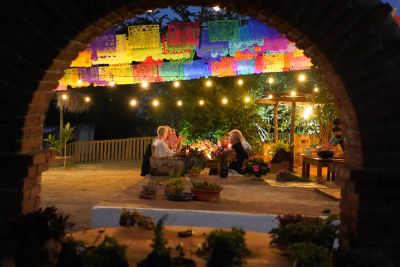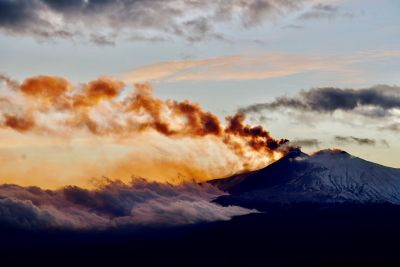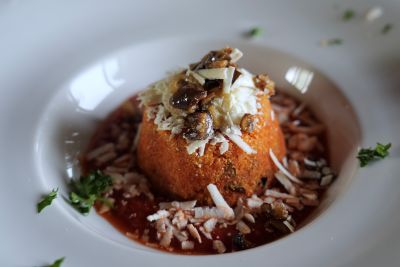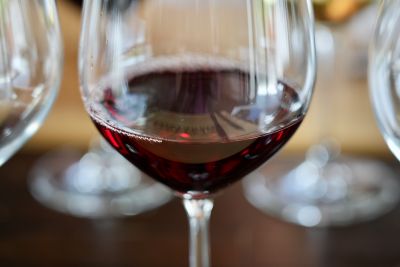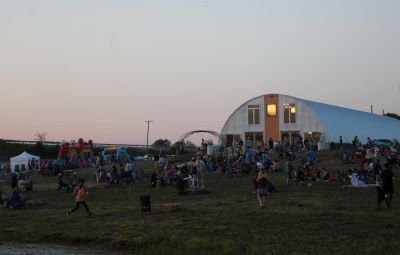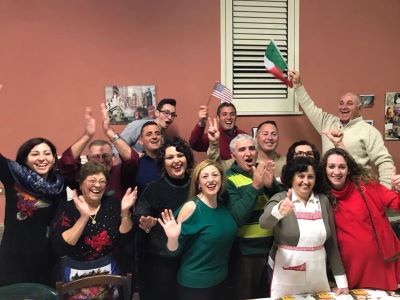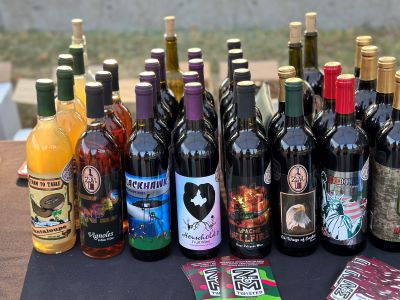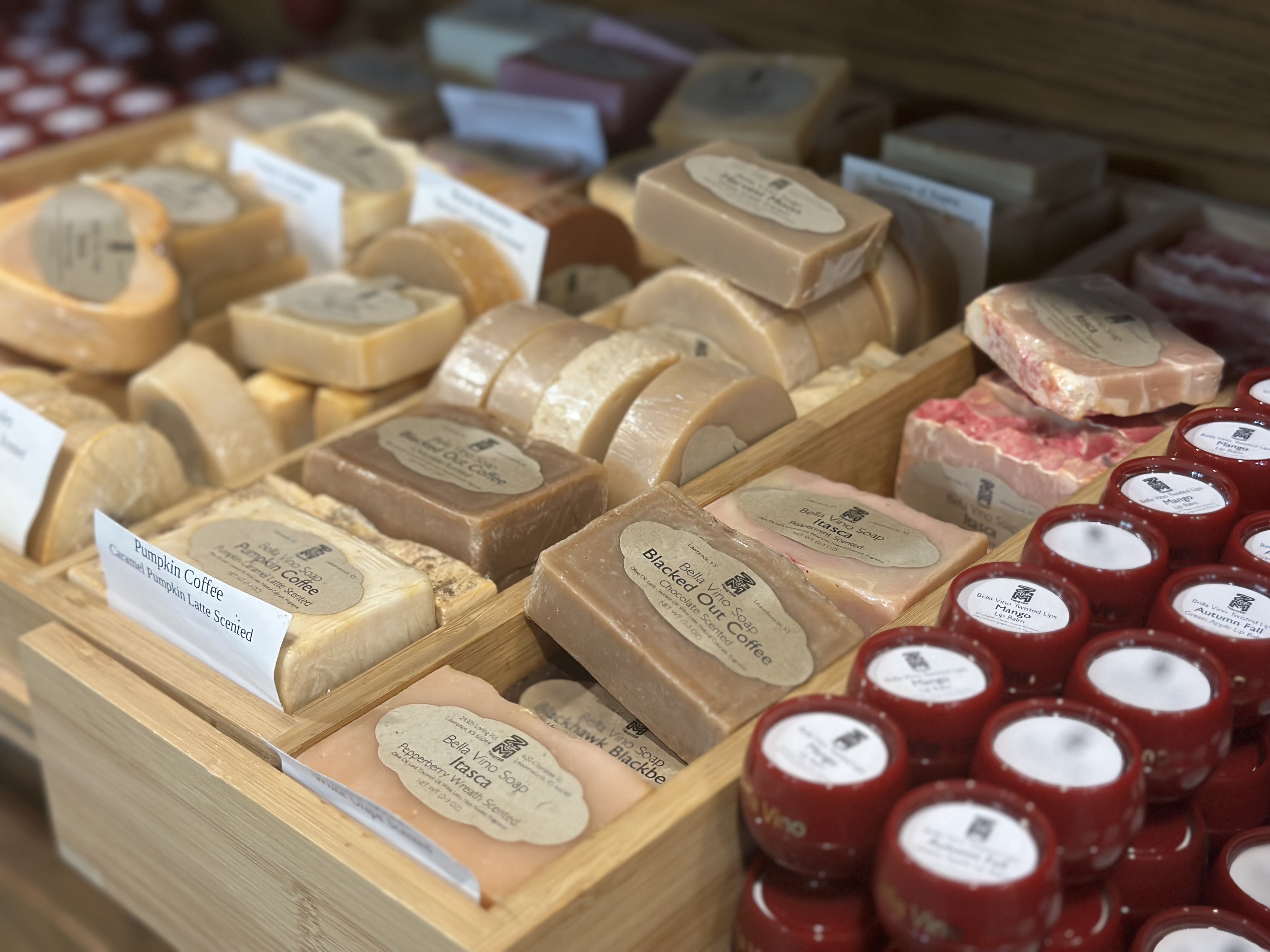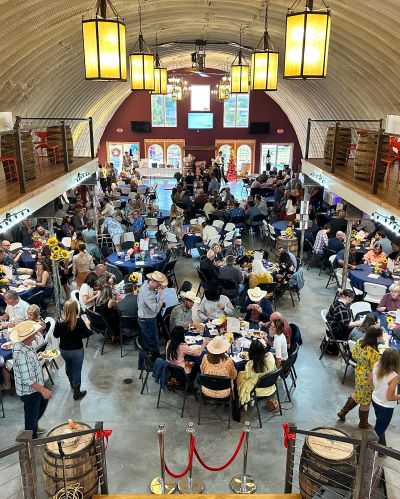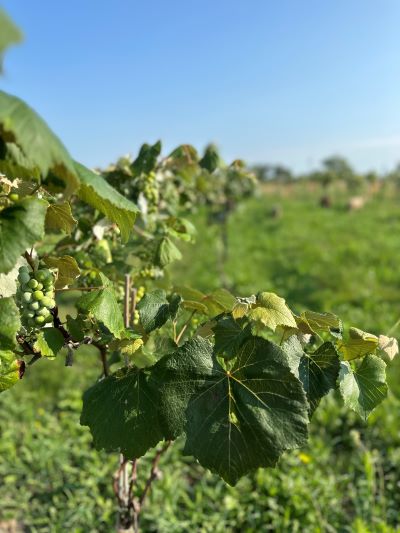Mike Elgan has a secret. He and his wife/business partner, Amira Elgan, are hosting their first Gastronomad Experience in Sicily. He can tell you that you'll spend a week "living as a Sicilian aristocrat." You'll enjoy authentic cuisine and wine enriched by Mount Etna's volcanic soil. But the rest is largely under wraps.
It's part of the fun—and the highly exclusive experience. Drawing from their own gastronomist lifestyles, the pair offers behind-the-scenes access to local food, wine, and cultural experts that typical tourists cannot access in Italy's Venice and Prosecco Hills, France's Provence, Spain's Barcelona and nearby cava wine country, Tuscany, Morocco, Mexico's Oaxaca, Mexico City, El Salvador, and now Sicily.
Amira has worked as food and beverage director for hotels in Los Angeles and New York City, including Mondrian, the Bonaventure, the Beverly Wilshire Four Seasons Hotel, and the Doral Hotels in Manhattan. A board-certified holistic health counselor, she is also the creator of The Spartan Diet and has written about food, nutrition, and health for decades. Meanwhile, Mike is a technology and culture journalist and the author of Gastronomad: The Art of Living Everywhere and Eating Everything.
Mike shared more about the Gastronomad Experience, why they chose to include Sicily, what makes their offerings unique, and what he hopes participants will take away.
What inspired the creation of the Sicily Gastronomad Experience?
Around 2006, Amira and I took a vacation with our kids, and I'd been reading all the stuff about digital nomad people, and this idea that you could travel while working was really great. I decided to do an experiment for a column I was working on for Computerworld.
The experiment was that I would be in remote areas of Central America, looking at ancient Mayan ruins with my family. I wasn't going to tell my editors or anyone else that I was doing this.
I went to meetings and did all this stuff. Nobody noticed that I was not in my home office. And so there was this revelation: "We're going to travel full time."
My wife was working for AT&T at the time, so we decided to take a vacation. We went to Greece and loved the life so much that my wife called and quit. We just stayed in Greece, traveling on islands for six months, and we're like, "OK, we're doing this. That's it."
Over time, we got rid of our house and put all the stuff in storage. With the exception of two years when we lived in Petaluma, Sonoma County, we've been traveling full time.
Fast-forward to 2014. I was always posting on Google Plus. My wife's a food person. She's headed food and beverage departments for high-end hotels like Mondrian. She always connects with chefs and winemakers. She goes to the farmers market, makes friends with farmers, and is fascinated by organic farming.
We're tasting wine in winter in Provence and chilling the rosé in the snow—beautiful stuff. People were constantly saying, "Gosh, I wish I could do that. I wish I could join you and do what you guys do."
At some point, my wife said, "What if we took six months of really fun stuff that we did and did it all day in one week?"
We had all these friends in these specific places. So, in 2017, we did the Barcelona experience, which was the first one. And it was amazing. We had this really beautiful apartment in Barcelona. Nowadays, we stay in the wine country and drive into Barcelona, but back then, we stayed in the city, and it was just a cool group of people: self-selecting super foodies who love traveling and wine.
We offered the most amazing peak-life experiences three or four times a day for a week. It's an incredible concept, and it works great. So we've been doing that since then, and we do between five and 10 of these a year in a bunch of locations.
An exclusive dining experience near Oaxaca, Mexico
How do your experiences differ from other culinary travel offerings?
We are so obsessed with exclusivity that on many of these experiences, participants don't even see a tourist. For example, we do Prosecco Hills and Venice. Typically, you'd go wine tasting at a tasting room. We go to the home of the winemaker. We have very close friends there who are winemakers, and one of them is an absolutely brilliant winemaker whose home is on the top of a hill, and the whole hill is her vineyards. We spend four or five hours with her talking about wine, the history of the region, and drinking and tasting wine.
We have friends in the same area who live in a beautifully restored 400-year-old farmhouse way up in the forest. The husband in this couple happens to be a brilliant chef.
The people we bring are treated like family; they're just incredible experiences you can't buy as a tourist. We often find ourselves in situations where if you do see tourists, they're like, "Why do they get to do that thing?"
It's very common for a chef to open their restaurant just for us when the staff has the day off, and he'll serve the food himself. These are famous restaurants.
One key and interesting differentiator is that everything's a secret. So when people sign up, they don't know what we're going to do, except in the vaguest of terms: We will do food stuff.
When they get up in the morning, we tell them, "Make sure you bring your sunscreen, sunglasses, and swimwear." They don't know what we're going to do until we're there doing it.
We find that people love this aspect of it. There are no decisions to be made. It's like all the good things with travel without a single bad thing. If people have an allergy or dietary restriction, there's no fuss about it. Everything that they are exposed to is within the realm of their dietary restrictions. It's just easy, super fun, and beautiful.
We do this in the most beautiful places imaginable. I'm a professional photographer, taking pictures the whole time. And then they end up with this incredible album. They can put their phones away, forget about the world, forget about politics, forget all stuff, and just live the way they would live if everything were exactly how they wanted it.
Gastronomad Experience takes guests to Mount Etna's wine country.
You offer experiences in several places. Why Sicily?
We selected Sicily for the same reason we selected all the other places: It's a place we love and where we know some really wonderful people. We've been going to Sicily once, twice, or three times a year for years, and the experience kind of formed itself.
We are great friends with this biodynamic winery on Etna; they love us, and we love them. We realized there were enough things that we could do there that we should have an experience.
The first one is in May. It was so popular that it just sold out instantly. Then we added another one, and that's selling out.
We travel around a bit, but the star of the show is the Etna wine country and that half arc on the eastern side. We don't go to Palermo. There are a whole bunch of places in Sicily we're not doing, and there are a whole bunch of beautiful things in Sicily that we're not doing for various reasons.
Luxurious accommodations are important for us. In the case of Sicily, they're both in vineyards. You can't find that kind of thing in Palermo or many other places. There are many beautiful places with amazing little villages, and you can find good food, but there is really not enough there to do four or five peak-life experiences a day. So we don't do that. My wife and I enjoy those places, and we will linger there. We love them, but we need a combination of incredible scenery, incredible luxury accommodations, and high-end restaurants.
For example, there are Michelin ratings in Mexico City, so we'll do the best restaurant in the Americas, the highest-end, most luxurious, highest-rated restaurant. And we'll have high-quality street food. So we do the range. We want the very top, but it amounts to home cooking.
I won't go into any details, but we do super high-end and super-real stuff. For example, in Oaxaca, Mexico, where half the population is Indigenous, there's no phony anything. We are in an Indigenous community with people who speak Zapotec in their homes. And so we do that, but then we do super high-end stuff as well.
Guests of the Sicily Gastronomad Experience enjoy haute cuisine.
What do you hope participants take away?
About 90-plus percent of our guests are Americans. We live in an industrial food system, and this is what we know very well. So, the degree to which we really understand what makes good olive oil or natural wine good and all the details not really known even to foodie-oriented people, by the end of it, they've gone through a very pleasurable but detailed masterclass in these details. When they go home, they're just throwing stuff away and starting over. And now, with the newfound knowledge and appreciation for the best things, they become snobs about that—not in a bad way, but they just have much higher standards because they have the knowledge.
Another thing is just peak-life experiences. We are on this planet for a very short period of time. If you want to experience Sicily and have one week, we want you to see the most magnificent landscapes, try the most incredible food, and get to know local Sicilians who are not in the tourism industry.
Travel is on the rise. Most people who go on vacation never speak to somebody who hasn't been paid to speak to them. The conversations they have with the people they meet are products. A tourist is a consumer who consumes the products and services of people who cater to tourists and travelers.
We live predominantly outside of that. So people spend a lot of time talking to locals who are just our friends, not in the tourist industry, and they get to know them really well.
How many Americans, for example, have had extensive conversations with Mexicans? The country's right there. We know Mexicans as migrant workers and immigrants or their children or grandchildren or great-grandchildren of immigrants, and we really should know them much better.
When our guests go to Sicily, they'll meet our friends. Sometimes, the friends are cheesemakers or chefs or people like that. But we often know people we just invite to dinner. So our group is there plus one or two or three of our local friends. We just have a dinner where there's lots of conversation, and they get to know people.
You've really been Sicilian for a week. You've lived as a Sicilian aristocrat for one week. And that's quite an experience. That's not tourism; it's very different. You're not just buying goods and services from people. You go straight into the inside of the culture. It's really a life-changing experience.
Raise a glass of biodynamic wine from an Etna winery.
If you enjoyed this article, consider subscribing to my newsletter for more content and updates.

